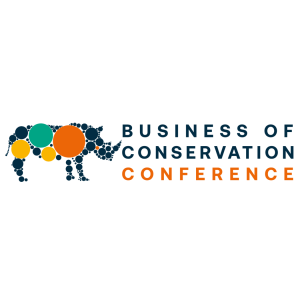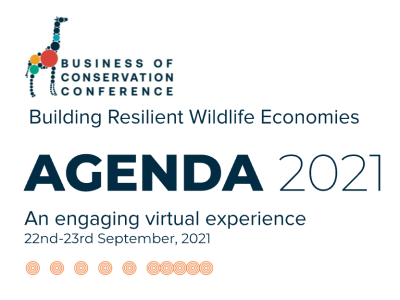
Business of Conservation Conference 2021
Kigali
Rwanda
Building Resilient Wildlife Economies
The way we do everything now has changed, including how we convene. The Business of Conservation Conference was back this year and it was not just be your regular conservation talk shop. BCC2021 was interactive and engaging, allowing time to reconnect with all those that we had lost touch with over the past unusual year. This year, BCC was different. It was about maintaining the momentum, building connections to build the conservation sector forward better. It was about loosening your tie, rolling up your sleeves, kicking the high heels off and getting down to play, learn and connect.
The conference was guided by the question: how can we make the conservation sector more resilient? It is more evident than ever that conservation needs to adopt more resilient and sustainable models that approach wildlife and habitats as a growth opportunity for African development. Understanding the importance of valuing wildlife and investing in it is discussed in our State of the Wildlife Economy in Africa Report. BCC 2021 explored the nuances of the wildlife economy in Africa and the report provides the background to our discussion. The Report, or parts relevant to you, are recommended as a pre-read for the meeting.
Organised by the School of Wildlife Conservation of the African Leadership University
AWEI Fellows and Team Members were active in the Conference as facilitators and participants.

Focus on leadership/management: In Africa, where institutions are weak, leaders have much more power to effect change than in other parts of the world. Given this leverage, the BCC has the potential to be more impactful than convenings like Davos, Milken, etc. Tapping into almost 2 decades of experience developing world-class leaders.
Strong application of business principles: To redefine nature as a great pillar of economic growth--for the benefit of Africans, conservation leaders must begin to apply business thinking to their projects/organizations and invent business models that leverage Africa’s unique competitive advantage--its biodiversity--to drive sustainable economic development in Africa. The BCC team will seek and showcase models that exemplify these principles.
Make Conservation “sexy” to the mainstream and the next generation: Given the continent's demographics (the average age of an African is 19.5), conservation needs to become more relevant to youth and women. It needs to also become more relevant to governments, businesses, and communities. The conference will host younger, talented Africans; showcase more women in the sector; and spotlight wildlife-dependent businesses beyond tourism from across the continent . We need to change the narrative and engender new champions for conservation so that it is seen as attractive and important to the future of Africa and the world.
Related links
Get updates by email
Through impactful research, stakeholder engagement, and professional development, AWEI is supporting the wildlife economy across Africa. Please subscribe for occasional updates on our work and forthcoming events.
Sign up for a quarterly dose of AWEI insights
In a complex and changing world, AWEI generates strategic ideas, conducts independent analysis on wildlife economies, and collaborates with global scholar-practitioners to provide training and expertise for biodiversity conservation, climate resilience, and inclusive economic opportunities in Africa.
